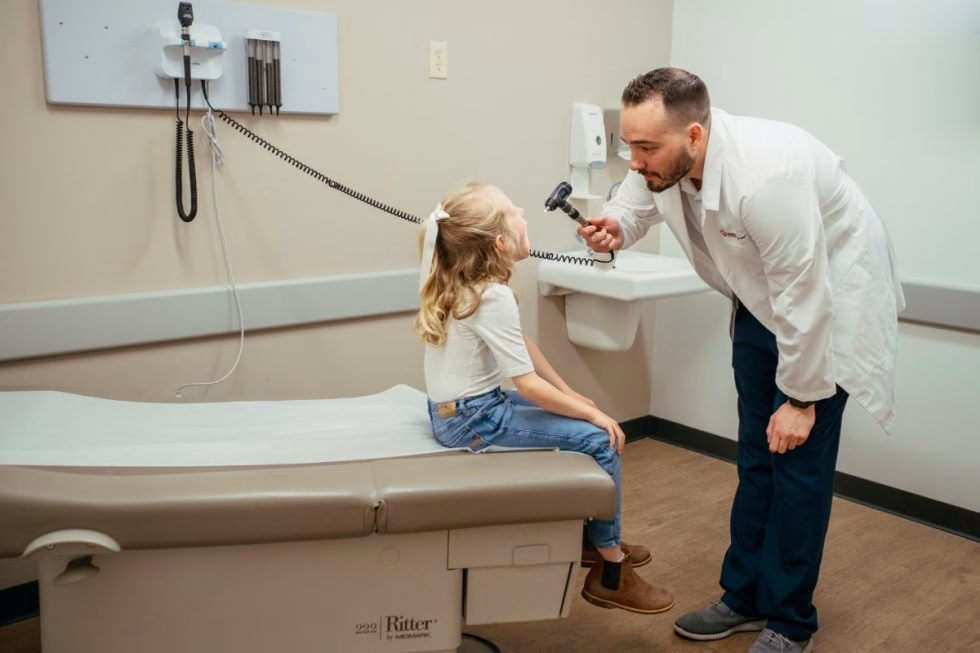
When your child develops a fever during a trip to Northgate Mall or sprains an ankle at Renaissance Park, a visit to urgent care can become necessary in a hurry. While it’s comforting to know that high-quality care is nearby, the experience can still be overwhelming, especially for children who feel anxious or afraid about medical visits. Whether it’s the unfamiliar surroundings, the fear of pain, or just feeling unwell, many children become nervous when a trip to urgent care is required.
At AFC Northshore, we understand how stressful it can be for both children and parents when a medical situation arises. That’s why we’re dedicated to offering not only efficient and compassionate care but also helpful strategies to support your child emotionally throughout the visit.
So, how can parents help a nervous child feel more at ease before and during an urgent care visit? Let’s walk through practical, research-backed steps you can take to prepare your child and ensure the experience is as stress-free as possible.
Schedule a visit online today.
Why Children Feel Nervous at Urgent Care
Children can experience anxiety about medical visits for several reasons. Common sources of fear include:
- Worrying that they might experience pain, especially from shots or examinations
- Concerns about being separated from a parent during the visit
- Negative past experiences with healthcare settings
- General fear of unfamiliar people, environments, or procedures
Young children thrive on predictability and comfort. A sudden trip to urgent care can interrupt their routine and make them feel out of control, especially when they don’t feel well. Recognizing the root of their anxiety is the first step to helping them feel safe and supported.
How to Prepare Your Child for an Urgent Care Visit
1. Use Calm and Honest Language
If your child is old enough to understand, explain the visit in clear, simple terms. Avoid saying things like “It won’t hurt” unless you are certain, as broken promises can increase fear and distrust. Instead, try saying, “We’re going to AFC so they can help you feel better. I’ll be with you the whole time.”
Keep your tone calm and reassuring. Children often pick up on a parent’s emotions, so staying composed can help them feel more secure.
2. Emphasize That the Staff is There to Help
Framing the visit in a positive light can ease uncertainty. Let your child know that the people at urgent care are kind helpers who want to make them feel better. For example, “The nurse is really nice and will help check your ear to see what’s going on.”
3. Bring a Comfort Item
Familiar items can provide emotional support. A favorite stuffed animal, small toy, or blanket can offer comfort in an unfamiliar environment. Even older children may benefit from having something familiar nearby.
4. Offer Simple Choices
Giving your child small choices can provide a sense of control. Ask them which comfort item they want to bring, what clothes they would like to wear, or what snack they’d prefer afterward. These decisions help children feel empowered during an otherwise unfamiliar situation.
5. Stay Calm and Model Positive Behavior
Your child will look to you for cues on how to respond. By staying calm, speaking in a steady voice, and maintaining relaxed body language, you help communicate that they are in a safe and manageable situation. Take deep breaths if you feel anxious, and stay positive, even if the visit is unexpected.
Tips for a Smooth Urgent Care Experience
Preparation goes a long way in making your urgent care visit smoother:
- Check in online before arriving to reduce wait time. AFC Northshore offers easy online check-in to help streamline your visit.
- Bring essentials like snacks, a water bottle, headphones, a tablet, or a coloring book to keep your child occupied during the wait.
- Pack important documents, including your child’s insurance card, a list of any medications, and a brief medical history if applicable.
Supporting Your Child After the Visit
Once the visit is over, take time to praise your child for how they handled the situation. Positive reinforcement can help build confidence and reduce future anxiety. You might say, “You did such a great job telling the nurse where it hurt,” or “I’m really proud of how brave you were today.”
Creating a positive memory after the visit, such as stopping for a small treat or playing at a nearby park, can also help your child associate urgent care with care and comfort instead of fear.
How AFC Northshore Supports Your Family
We know that treating children requires not only medical expertise but also emotional awareness. Our team is experienced in working with pediatric patients and is trained to help make children feel at ease during their visit.
Here’s what families can expect at our clinic:
- Walk-in care for unexpected illnesses and minor injuries
- Short wait times with online check-in
- Extended evening and weekend hours for your convenience
- Friendly staff trained in calming and supporting children
- A clean, welcoming, family-friendly environment
Turn Stress Into Support
Seeing your child anxious or uncomfortable is never easy. But with preparation, patience, and a few simple strategies, you can help turn an urgent care visit into a manageable experience for both you and your child. Calm reassurance, honest communication, and supportive behavior all go a long way in easing your child’s fears.
At AFC Northshore, we’re here to help you through life’s unpredictable moments with the care, compassion, and convenience your family deserves. Whether it’s a cough that won’t go away or a minor injury that needs attention, you can count on us.